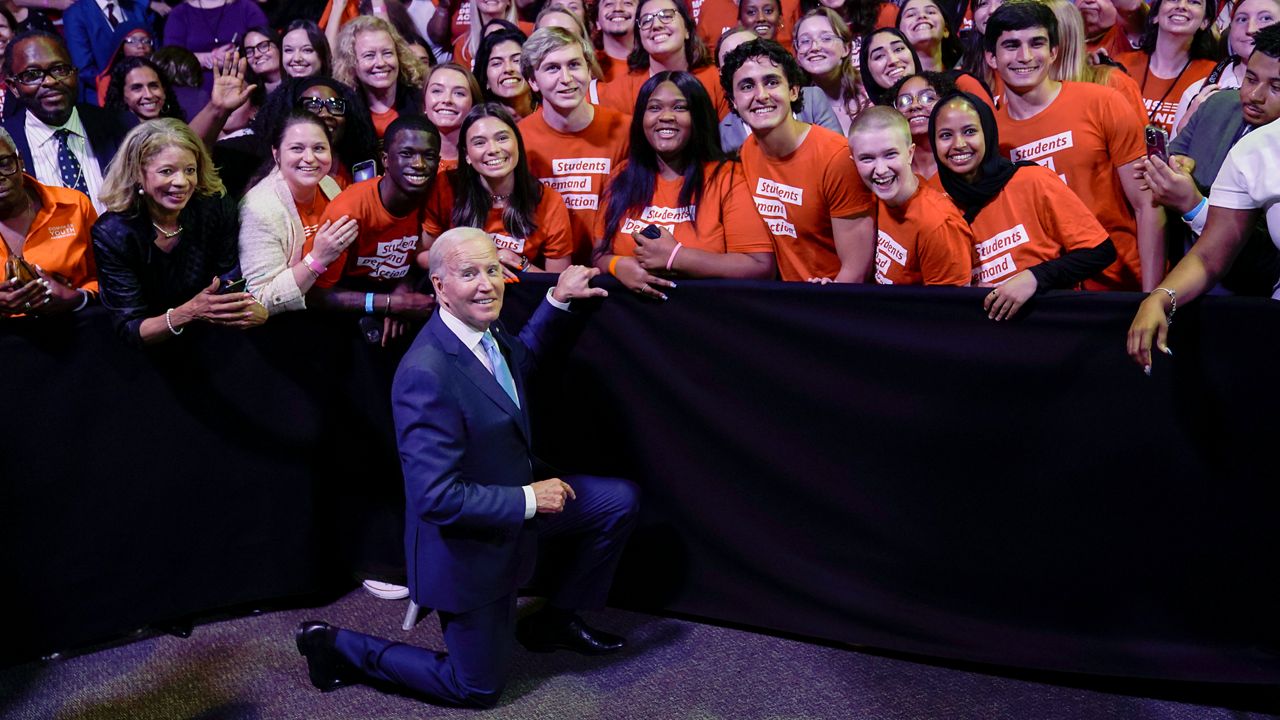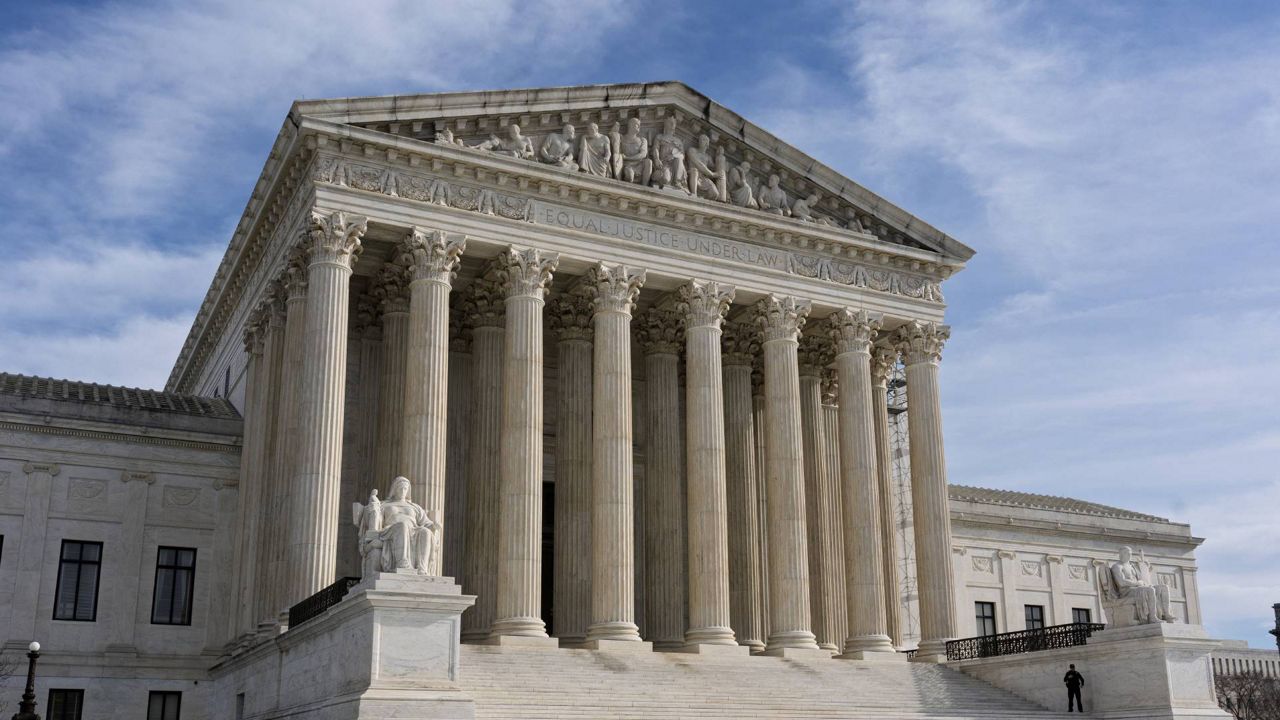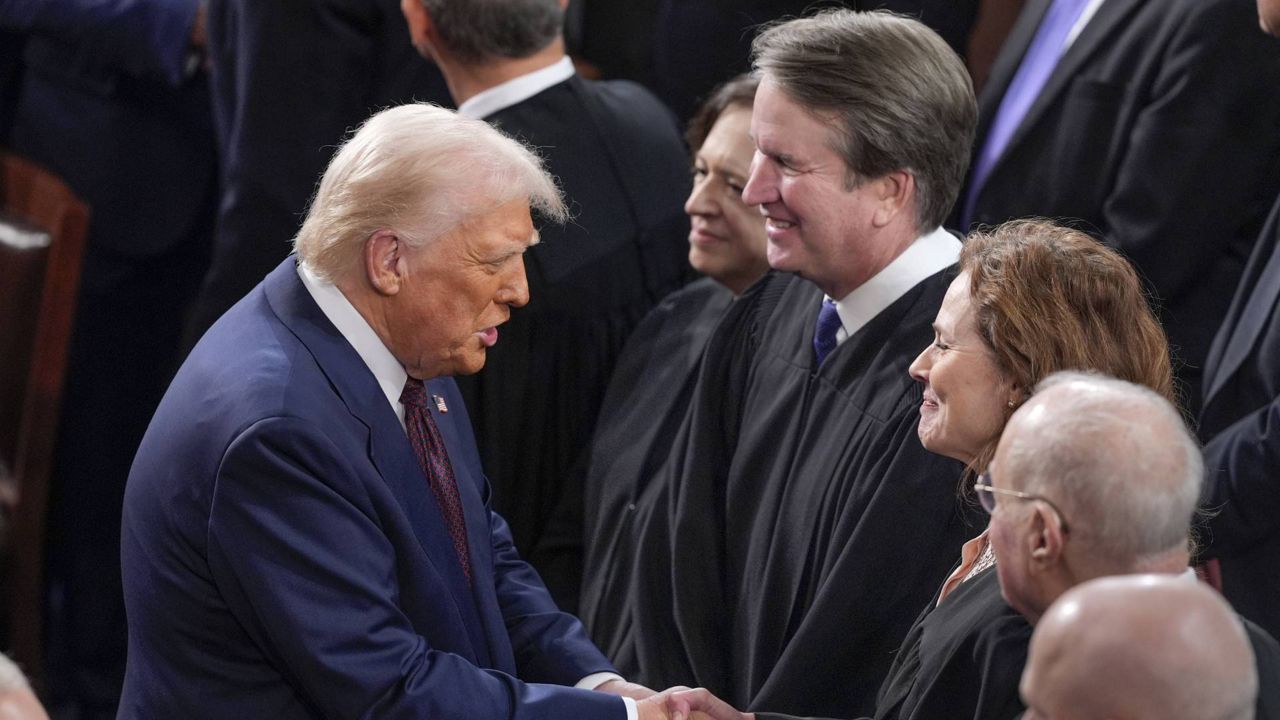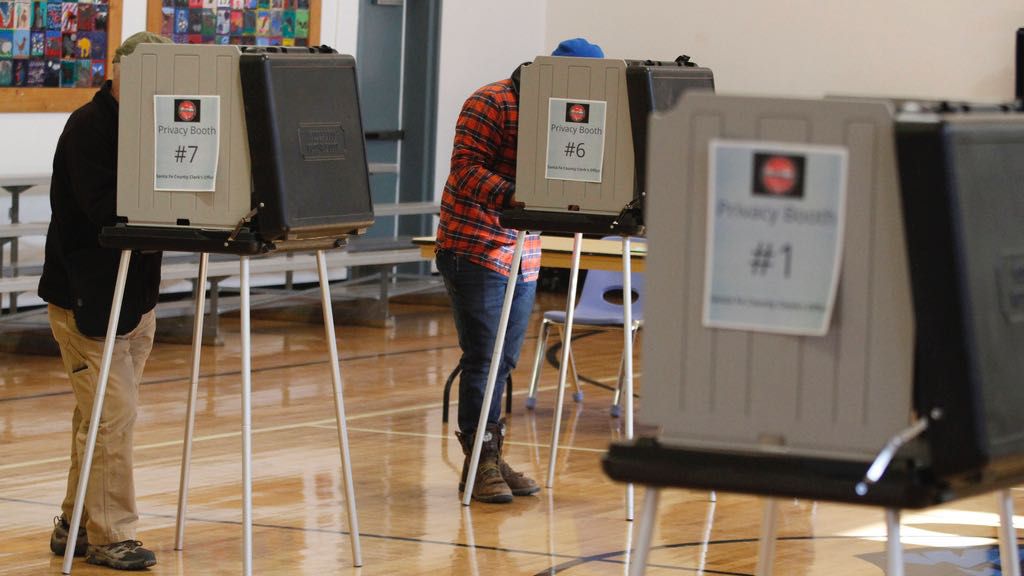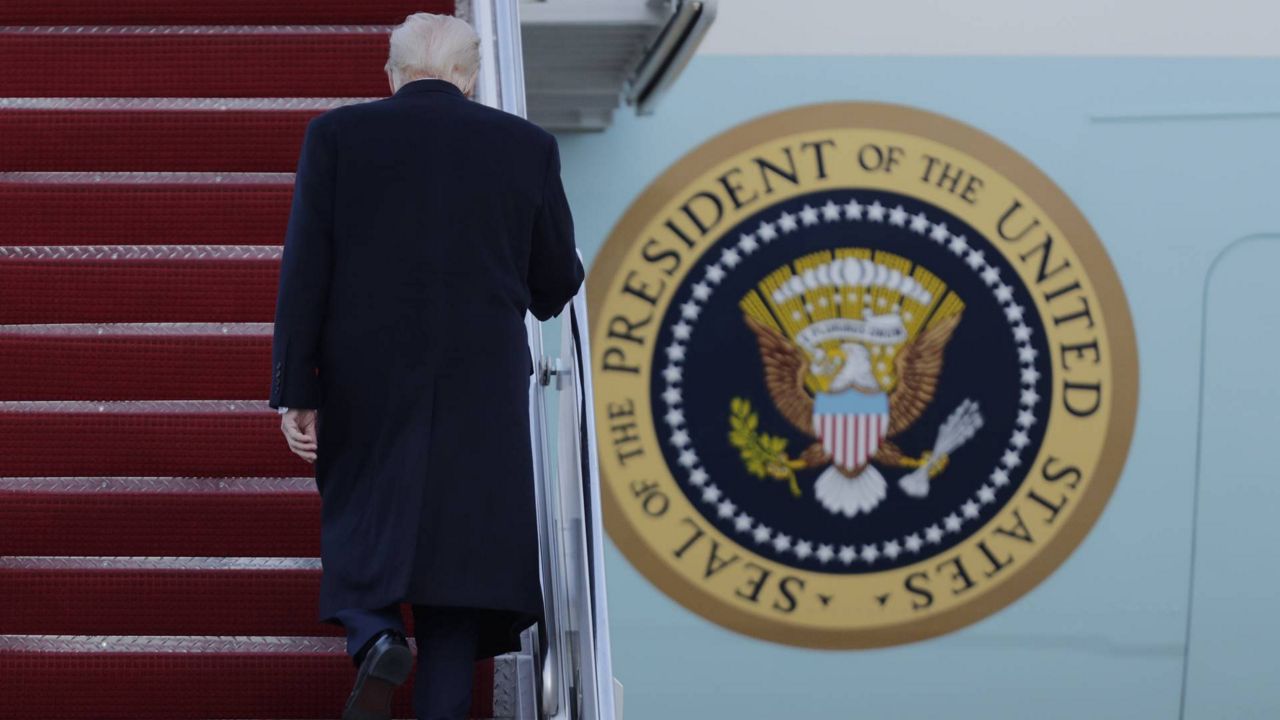After record youth turnout in the 2020 elections, fewer Americans ages 18 to 29 plan to vote in 2024 in part due to widespread dissatisfaction with both President Joe Biden and his likely challenger former President Donald Trump, according to a new poll of young people by Harvard’s Institute of Politics.
Compared to the same period in the 2020 election cycle, young Americans “definitely” planning to vote in the next presidential election dropped eight percentage points – from 57% to 49%. The U.S. Census Bureau estimated 54.1% of 18- to 29-year-olds voted in 2020, which had the highest youth turnout overall of any election in the 21st century.
Another 17% said they will “probably vote” and another 14% said there's a 50-50 chance.
“From a lack of trust in leaders on a variety of critical issues such as climate change, gun violence, and the war in the Middle East, to worries about the economy and AI, young people’s concerns come through loud and clear in our new poll,” the institute’s director Setti Warren said in a statement. “As the 2024 campaign season kicks into high gear, candidates up and down the ballot would be wise to embrace the opportunity to listen to – and re-engage – this generation.”
While young voters overwhelmingly preferred Biden over Trump, to the tune of 57% to 33%, neither candidate garnered more than 40% support when asked whether respondents trusted them more than their rival on issues ranging from democracy and “strengthening the working class,” to abortion, education and climate change.
Both candidates have been courting the youth vote in their bids to win the White House for a second time. Biden won the record-setting youth vote by 24 percentage points in 2020, but a lack of progress on important issues to younger voters and the president’s response to mounting Palestinian civilian casualties in the Israel-Hamas war has left him vulnerable to more defectors and nonvoters.
“President Biden has a choice: Declare a climate emergency and support a ceasefire in Gaza or lose the youth vote,” the Sunrise Movement posted on X, the social media platform formerly known as Twitter. The influential climate change group is active in youth advocacy on the Democratic Party’s left and can be partially credited for popularizing the economic and climate policy platform known as the Green New Deal, adopted by Rep. Alexandria Ocasio-Cortez and mined for parts by Biden.
On each of the issues respondents were asked about, roughly one-third or more said they trusted neither candidate to handle them well. But young Americans trusted Biden and Trump the least to handle the Israel-Hamas war, with 44% saying they trusted neither man. More than half of independent voters lacked trust in both candidates to resolve the crisis.
“In a recent Quinnipiac poll, Americans voters overall sympathize with Israelis over Palestinians by a margin of 54-24. But among voters under 35, the numbers are nearly the reverse of that, with young voters more sympathetic to Palestinians by a 52-29 margin,” longtime polling analyst Nate Silver wrote in a recent newsletter. “Should Biden do more to cater — or if you prefer, to pander — to young voters? Actually, I think that’s not so clear. A more pro-Palestine stance probably would help Biden with young voters, for instance — but it’s unpopular with the rest of the electorate and might hurt Biden overall.”
Here’s what else the poll found on key issues:
Forced to pick between the two, adults under 30 prefer Biden over Trump 41% to 30%, with 13% unsure and 15% saying they wouldn’t vote.
Biden held the advantage over Trump when it came to protecting democracy (39% to 27%), abortion (39% to 24%), education (39% to 25%), climate change (39% to 19%), health care (36% to 26%), gun violence (35% to 25%) and the war in Ukraine (33% to 29%).
Trump was more trusted than Biden when it came to immigration policy (34% to 31%), “strengthening the working class (31% to 34%), crime and public safety (32% to 29%), crime and public safety (29% to 32%), national security (37% to 27%), the economy (25% to 40%) and the Israel-Hamas war (29% to 25%).
Nearly 70% of respondents who favored Biden over Trump said their vote was based more on “opposition to Donald Trump becoming president again” than “support for President Biden and his policies.
Meanwhile, two-thirds of young Trump supporters said their vote was based on loyalty to the GOP primary frontrunner compared to 35% who said they supported Trump because of their opposition to Biden.
When current and potential independent candidates like conspiracy theorist Robert F. Kennedy Jr., leftist Cornel West and Sen. Joe Manchin, D-W.V., are included in the poll, 29% of young Americans pick Biden, 25% pick Trump and 10% pick Kennedy, while West and Manchin log 3% and 2%, respectively. Over 30% said they didn’t know.
In a field with the independent candidates, Biden’s lead increases to eight points among registered young voters and 16 points among likely voters.
Biden’s approval rating was at 35%, Vice President Kamala Harris’ was at 36%, Democrats in Congress garnered 40% approval and only 27% approved of House Republicans’ job performance.
A plurality of respondents (38%) reported an independent or unaffiliated political registration, while 35% said they were affiliated with Democrats and 26% with Republicans
A major contributing factor to the decline in planned youth participation since 2019 were ten-point declines in Republicans (66% to 56%) and independents (41% to 31%) expecting to vote. Democrats only lost two percentage points since last cycle, dropping from 68% to 66%.
Around 70% of college graduates planned on voting, roughly equal to what polling found in 2019, but college students saw a 13 percentage point drop and young Americans not in college and without a degree saw a eight percentage point drop in planned participation.
While 65% of young Americans generally believe their finances are either very or fairly good, 48% said the national economy was “fairly bad” and 22% said it was “very bad.”
Young Black and Hispanic Americans saw the starkest declines in planned participation. In the poll from autumn 2019, half of Black young people told pollsters they planned to vote. In the poll released Tuesday and conducted from Oct. 23 to Nov. 6, just 38% said they would in 2024. For Hispanics, the decline was even starker, falling from 56% to 40%. Young white Americans saw a slimmer decline, from 62% to 57%.
Majorities of Black and Hispanic voters have long been a base of support for Democrats. But while recent polling shows a Biden holds a vast lead over Trump among Black voters and a slim one among Hispanic voters, Trump’s support appears to have grown since 2020. Despite receiving single digit support from Black voters in his first two presidential campaigns, an October New York Times/Siena College poll found 20% of Black voters in six key battleground states were “probably” or “definitely” planning to vote for Trump. Hispanic voters in those states – Arizona, Georgia, Michigan, Nevada, Pennsylvania and Wisconsin – Biden edged out Trump 43% to 39%.
While represented by a small sample size – just 646 respondents out of 3,662 total – voters ages 18 to 29 in those battleground states said they were more likely to vote than Harvard’s national survey found. The Times/Siena poll found 87% of young Americans were “almost certain,” “very likely” or “somewhat likely” to vote in 2024’s presidential election.
What’s the solution? Both Trump and, to a greater extent due to his reliance on their support, Biden will spend the next year trying to appeal to the youth vote and encourage them to turnout. Respondents to the Harvard poll had some suggestions.
Majorities of young Americans who may vote, but aren’t committed yet said they would find certain tactics helpful at encouraging them to cast a ballot: voting deadline reminders (67%), conversations with friends and family members (64%), a non-partisan voting guide (63%), a nonpartisan how-to-vote training (57%) and meeting a candidate or campaign representative in person (53%).
“The bad news is that fewer young people intend to vote in this election compared to the Biden-Trump election of 2020. The good news is there's still time, and we know what Gen Z and young millennials want to see and hear,” Harvard’s Institute of Politics polling director John Della Volpe said in a statement. “They want evidence that democracy works, that government can address our challenges, and that there's a meaningful difference between the two parties.”




